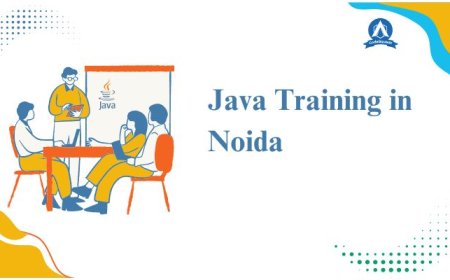The Evolution of Online Class Help in Post-Pandemic Education
The Evolution of Online Class Help in Post-Pandemic Education
The Evolution of Online Class Help in Post-Pandemic Education
The COVID-19 pandemic reshaped Hire Online Class Help education globally, accelerating digital adoption in ways previously deemed impossible within a short timeframe. Virtual classrooms, asynchronous modules, and proctored online assessments became the norm overnight. While online education existed long before the pandemic, its rapid mainstreaming created unprecedented challenges and opportunities for students and educational institutions alike. One key phenomenon that emerged and evolved during and after the pandemic is online class help services.
These services, once niche and largely hidden, became increasingly visible and normalized in student communities. The post-pandemic era continues to witness their evolution, driven by academic pressures, technological advancements, and shifting perceptions of learning assistance. This article examines how online class help has evolved in post-pandemic education, exploring its roots, drivers of growth, current trends, ethical considerations, and implications for the future of academic integrity and student support systems.
- Online Class Help Before the Pandemic
Before 2020, online class help services were primarily used by:
- Distance learners enrolled in online degree programs
- International students struggling with language barriers
- Working professionals balancing education with full-time jobs
- Students with learning disabilities requiring tailored assistance
These services operated discreetly, often marketed as tutoring, editing, or assignment help, with direct class-taking support considered controversial due to academic integrity concerns.
- The Pandemic as a Catalyst for Mainstream Adoption
- Sudden Shift to Online Learning
With universities closing physical campuses, millions of students were thrust into online learning environments without preparation. Challenges included:
- Navigating unfamiliar Learning Management Systems (LMS)
- Managing asynchronous discussions and weekly deadlines
- Facing increased reading loads without in-person lectures
- Taking timed online quizzes and proctored exams at home
- Increased Academic Pressure
Many students, especially in Online Class Helper professional programs such as nursing, business, and STEM fields, faced higher workloads to compensate for reduced in-person instruction hours. This drove demand for academic assistance to manage multiple deadlines.
- Mental Health and Motivation Declines
Extended isolation, uncertainty, and lack of campus support networks worsened student mental health. Motivation for self-directed online learning declined, leading students to seek external help to stay on track academically.
- Growth of Online Class Help Platforms
Entrepreneurs capitalized on this rising demand, expanding online class help platforms to:
- Offer comprehensive services covering quizzes, assignments, discussions, and full-course management
- Market packages with guaranteed grades or completion timelines
- Recruit freelancers globally, creating competitive pricing structures
- Post-Pandemic Education: Hybrid Models and Persistent Challenges
As campuses reopened, education did not revert fully to pre-pandemic models. Hybrid learning, flipped classrooms, and blended courses remain common. However, challenges persist:
- Students continue facing asynchronous modules and online assessments alongside in-person classes
- Institutions expect higher levels of digital literacy, widening achievement gaps for students with limited tech exposure
- Many learners now balance remote internships, jobs, or family care with ongoing hybrid education
These persistent factors sustain and transform the relevance of online class help in the post-pandemic landscape.
- The Evolution of Online Class Help Services in the Post-Pandemic Era
- Diversification of Services
Post-pandemic, online class help nurs fpx 4000 assessment 1 platforms have expanded offerings to include:
- Full semester management: Handling discussions, assignments, quizzes, and final exams end-to-end
- Proctored exam navigation: Providing strategies or direct impersonation for strict online proctoring systems
- Capstone and thesis support: Offering data analysis, literature reviews, and presentation preparation for final year projects
- STEM lab simulations and calculations: Assisting with complex virtual labs and engineering modules
- Integration of AI and Automation
Platforms now use AI tools to:
- Generate essay drafts or literature summaries
- Conduct grammar and plagiarism checks before submission
- Track student progress and predict workload bottlenecks
This integration enhances efficiency and quality, attracting students seeking reliable, fast support.
iii. Marketing as Academic Coaching
To reduce ethical concerns, many services rebrand as academic coaching platforms, emphasizing tutoring, concept explanation, and study planning. However, direct class-taking assistance remains a significant portion of operations, marketed discreetly within bundled packages.
- Globalization of Services
Freelancers from countries with strong English proficiency but lower living costs now dominate the supply side. Students from developed countries hire these professionals for cost-effective, round-the-clock support, creating a global academic gig economy.
- Quality Assurance and Professionalization
Competition has driven platforms to implement:
- Subject-specific expert recruitment with degree verification
- Internal quality checks and editorial teams
- Money-back guarantees for grade performance
This professionalization increases nurs fpx 4000 assessment 4 trust among students, making these services a normalized academic resource in many student networks.
- Psychological and Academic Impact on Students
- Reduced Stress and Improved Grades
Students overwhelmed by multiple responsibilities use online class help to reduce stress, meet deadlines, and maintain GPA requirements crucial for scholarships, internships, and graduation timelines.
- Erosion of Academic Skills
Over-reliance on external help without engaging in learning processes can reduce critical thinking, writing, and problem-solving skills, undermining long-term academic and career readiness.
- Normalization of Outsourcing
Post-pandemic cohorts increasingly view online class help as an acceptable academic management tool rather than a violation, particularly when used discreetly.
- Institutional Responses to the Growth of Online Class Help
- Stricter Academic Integrity Policies
Universities now explicitly prohibit contract cheating in academic honesty statements, introducing harsher penalties, including expulsion, for outsourcing work.
- AI Detection Tools
Institutions invest in advanced AI tools to detect ghostwritten assignments, unauthorized exam support, and academic misconduct patterns within LMS data analytics.
iii. Increased Student Support Services
Recognizing the drivers of outsourcing, many universities expand mental health resources, peer tutoring, writing centers, and flexible assignment policies to reduce dependency on external help.
- Ethical and Legal Debates
The post-pandemic rise of online class help services raises ethical and legal questions:
- Is it academic dishonesty or reasonable accommodation? Students argue that such services substitute inaccessible institutional support.
- Does it disadvantage honest students? Class help undermines fairness for students adhering strictly to academic integrity policies.
- Should providers be regulated? Countries like Australia have criminalized contract cheating services, while others remain unregulated.
- What about tutoring vs. impersonation? Tutoring services are ethical academic supports, while impersonation crosses institutional and professional ethical lines.
- The Future of Online Class Help in Post-Pandemic Education
- Personalized AI Tutoring
AI-based tutoring platforms will provide real-time conceptual assistance, reducing demand for human online class helpers in lower-level courses.
- Regulation and Certification
Governments may introduce regulatory frameworks to distinguish legitimate tutoring and coaching services from impersonation-based contract cheating platforms.
iii. Integration with Institutional Support
Forward-looking universities may integrate external tutoring services into their academic support ecosystems under strict ethical guidelines to meet diverse student needs.
- Expansion into Professional Certification Assistance
Online class help will increasingly support students pursuing professional certifications, licensure exams, and upskilling programs in an evolving job market.
- Ethical AI and Human Oversight
Platforms will combine AI-generated drafts with human editing to maintain quality and minimize detection risks, while raising new ethical questions about authorship and originality.
- Recommendations for Students Considering Online Class Help
|
Recommendation |
Rationale |
|
Prioritize Tutoring Over Outsourcing |
Builds knowledge and reduces long-term academic dependency. |
|
Check Institutional Policies |
Avoid penalties for unauthorized assistance that could jeopardize degrees or careers. |
|
Use for Strategic Support |
Employ services for editing, literature summaries, or practice quizzes rather than direct class-taking. |
|
Maintain Academic Integrity |
Protects reputation, professional eligibility, and self-confidence in skills. |
|
Combine with Time Management and Wellness Strategies |
Addresses root causes of academic overwhelm rather than short-term symptom management. |
- Conclusion
The post-pandemic era has nurs fpx 4005 assessment 2 transformed online class help services from discreet, niche operations to mainstream academic resources embedded in student survival strategies. This evolution reflects broader changes in education delivery, workload expectations, and student mental health landscapes. While these services offer undeniable benefits in managing deadlines, reducing stress, and improving grades, ethical and legal concerns remain central to their continued use.
As online education becomes integral to higher education globally, stakeholders must balance technological advancement with academic integrity, student wellbeing, and equitable access to legitimate support systems. The future of online class help will depend not only on market demand but also on how institutions adapt to students needs in an era where digital learning and academic assistance have become inseparably intertwined.
























